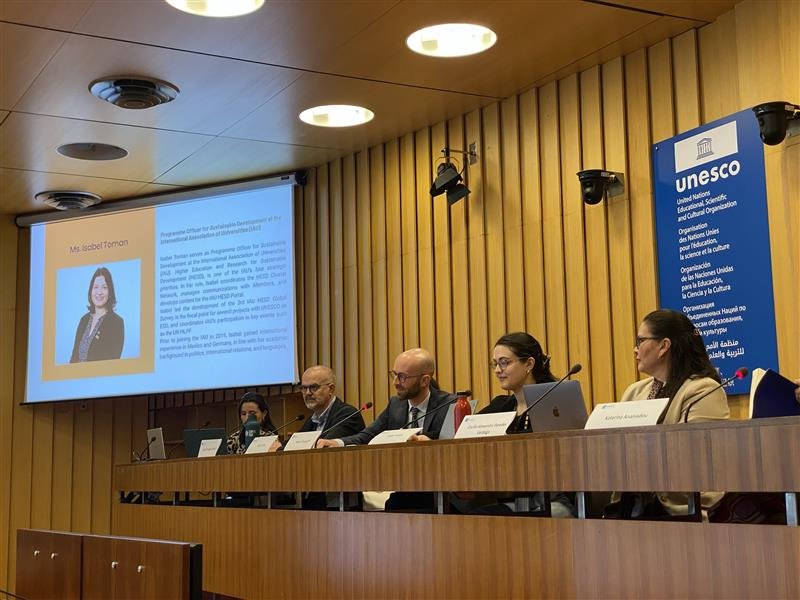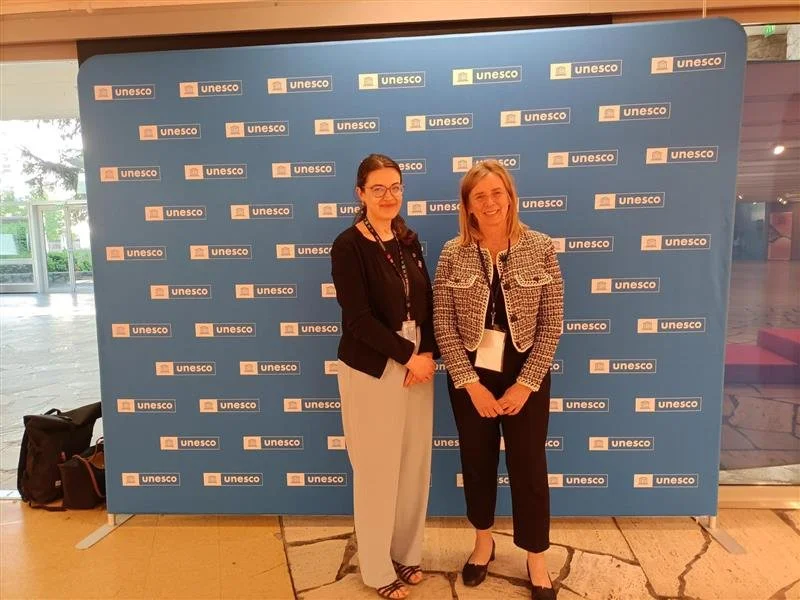World Earth Month 2025: the Role of Higher Education Institutions in Addressing Sustainability Challenges
To mark World Earth Month 2025, the International Association of Universities (IAU) joined global partners at UNESCO Headquarters in Paris for an event convened by UNESCO IESALC in collaboration with National Geographic Learning. This high-level gathering brought together education leaders, sustainability experts, and policymakers to explore the transformative role of higher education in addressing global sustainability challenges.
The event focused on how strengthened international cooperation, especially across and with the Global South, can accelerate progress toward sustainable development. Participants engaged in dialogue on systemic change, capacity building, and the integration of sustainability principles across all functions of higher education institutions.
IAU’s Voice in the Conversation
Representing the IAU, Isabel Toman, Programme Officer for Sustainable Development, took part in Session 3: “Networks in Action: Leveraging Global Collaboration for Systemic Transformation in Higher Education.” In her intervention, she underscored the Association’s deep-rooted commitment to global collaboration in the field of Higher Education for Sustainable Development (HESD), shaped by:
75 years of leadership in international higher education cooperation
A diverse global network of over 600 member institutions in more than 120 countries
Three decades of focused work on advancing sustainable development through higher education
Toman highlighted flagship IAU initiatives such as the HESD Cluster and Responsible Futures International, which aim to embed sustainability in teaching, research, campus operations, and community outreach. She also presented key findings from the 2023 IAU Global Survey on HESD, revealing persistent challenges across the sector, including:
Inadequate funding for sustainability initiatives
Limited capacity-building and training opportunities
The need for deeper, more equitable partnerships between institutions, particularly between the Global North and South
These insights reaffirmed the urgent need for multi-stakeholder collaboration and sustained institutional commitment to truly embed sustainability into the DNA of higher education.
Strengthening Global Ties
In addition to speaking on the panel, Isabel Toman met with Sandra den Otter, Vice President for Global Engagement at Queen’s University (Canada), an IAU Member institution and active participant in the HESD Cluster. Sandra, who also contributed to the event as a speaker, emphasized the importance of engaging diverse institutional voices and leveraging international platforms to foster shared solutions. Their exchange underscored the strength of IAU’s global network and its collective vision for sustainability in higher education.
Launching New Tools for Greening Higher Education
A highlight of the event was the launch of the new Open Educational Resource (OER) titled “Introduction to Greening Higher Education,” developed by UNESCO IESALC and National Geographic Learning. This practical and accessible resource is designed to help institutions integrate sustainability across curricula, governance, and institutional strategy. It represents a meaningful step toward scaling sustainability education and supporting universities in becoming true drivers of the 2030 Agenda.


